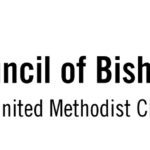Rev. Tina Rees, DSC Health and Welfare
 The cost of health care has been rising for everyone, and nowhere has that been more evident than in the cost for clergy healthcare. Insurance costs for our clergy are higher than for many other groups in American society, and the statistics on stress related illness in clergy are both startling and sobering. Furthermore, the financial cost is only the beginning of the equation; poor health in our clergy costs our congregation their beloved leaders, causes stress for our clergy families, and steals vital years of life from our clergy members. This is why Bishop Bob Hoshibata has been urging clergy members to take two consecutive days off each week. Clergy have a very busy schedule and often don’t actually take off the one day a week they have been traditionally expected to take. When they do take a day off, those days are often interrupted by hospital visits, family crisis, and sermon preparation. Taking time to rest and renew is crucial to physical and spiritual health, and yet clergy are the least likely among us to do this, simply because there are so many needs to be met in our congregations. How can we help our clergy listen to the Bishop and take care of themselves?
The cost of health care has been rising for everyone, and nowhere has that been more evident than in the cost for clergy healthcare. Insurance costs for our clergy are higher than for many other groups in American society, and the statistics on stress related illness in clergy are both startling and sobering. Furthermore, the financial cost is only the beginning of the equation; poor health in our clergy costs our congregation their beloved leaders, causes stress for our clergy families, and steals vital years of life from our clergy members. This is why Bishop Bob Hoshibata has been urging clergy members to take two consecutive days off each week. Clergy have a very busy schedule and often don’t actually take off the one day a week they have been traditionally expected to take. When they do take a day off, those days are often interrupted by hospital visits, family crisis, and sermon preparation. Taking time to rest and renew is crucial to physical and spiritual health, and yet clergy are the least likely among us to do this, simply because there are so many needs to be met in our congregations. How can we help our clergy listen to the Bishop and take care of themselves?
The answer begins with the priesthood of all believers, Caring Ministry teams, and the Conference Health and Welfare Committee.
There are many members of our congregations requiring care at any given time: members who are in the hospital, members recovering from surgery, members who are at home dealing with health or personal crises; members who are dealing with the decline or death of family members; members who have recently had babies or adopted children. So many people in our congregations are dealing with situations requiring visitation, meals, and spiritual care. Caring Ministry teams can provide for most of these members, relieving our clergy from the need to be present for visitation and care coordination on a daily basis. But how can we adequately train Caring Ministry team members who will be confidential, compassionate, and effective?
In February 2013, the Conference Health and Welfare Committee held a conference that provided training on a variety of topics: development of Caring Ministry teams, listening skills, methods of approaching people in crisis, the needs of aging congregants, diabetes resources, and resources for parish nurses. Attendees at the conference came from all corners of the DSC, representing twenty-three different United Methodist churches. Still, many churches were absent from this training, missing out on an excellent opportunity to gain important skills for developing an effective Caring Ministry team.
So you missed the February conference—don’t worry! Another conference, this one a retreat, is being held September 13 – 15, 2013, at our camp at Mingus Mountain. This retreat will feature sessions on strengthening your Health and Caring ministries, resourcing parish nurses and more! The retreat will provide excellent opportunities for parish nurses and Caring Ministry team members to exchange ideas, successes, and help one another in meeting congregational challenges. When we share our resources and knowledge, we are able to meet all of our challenges effectively with grace and wisdom.
So you don’t currently have a Caring Ministries team? Send members interested in forming a team to the September retreat to provide them with guidance, resources, and valuable colleagues in ministry to assist them in creating a meaningful and effective Caring Ministry team. Contact Therese Pineda at tpinedarn@mac.com for additional information.




